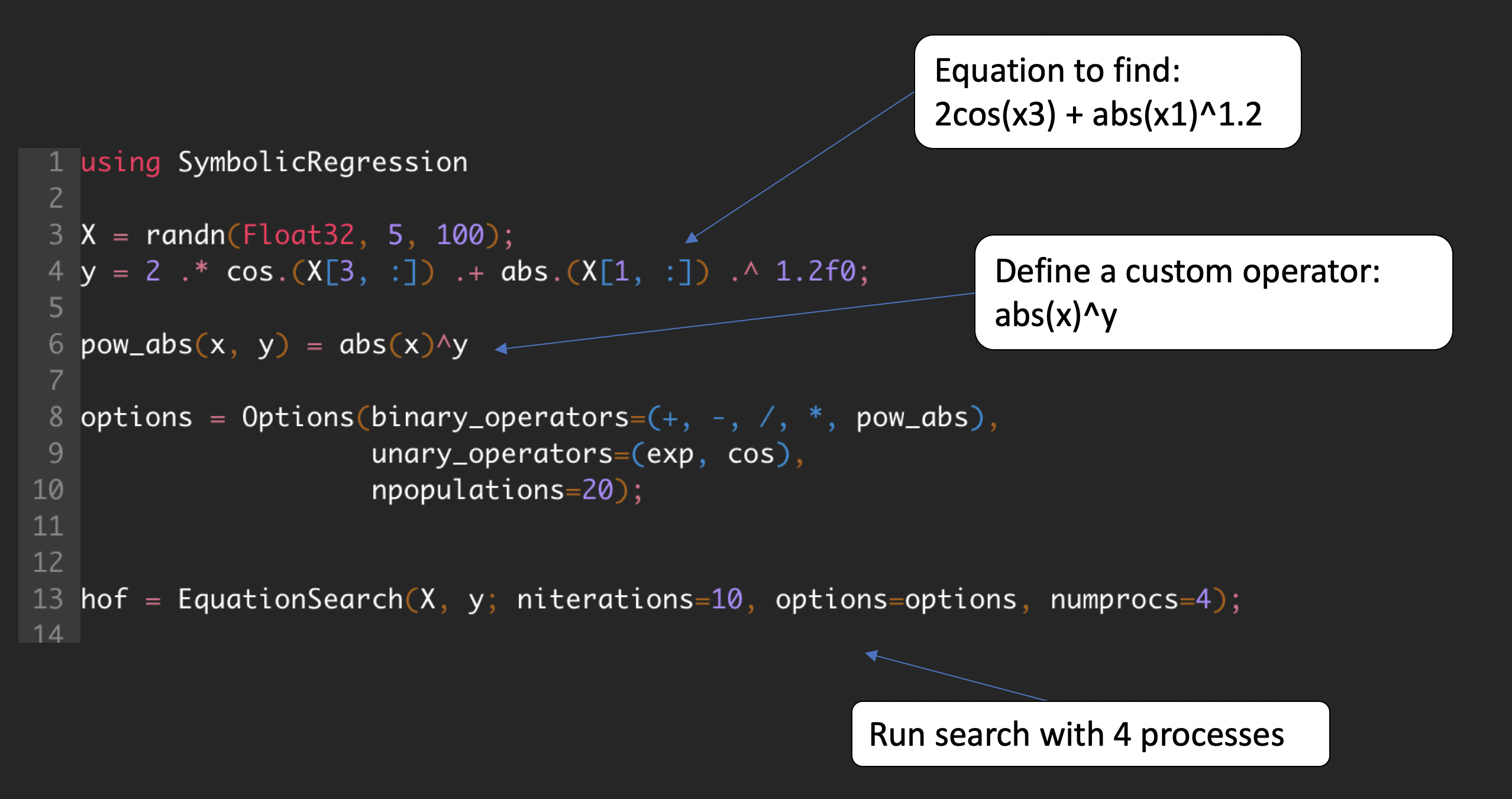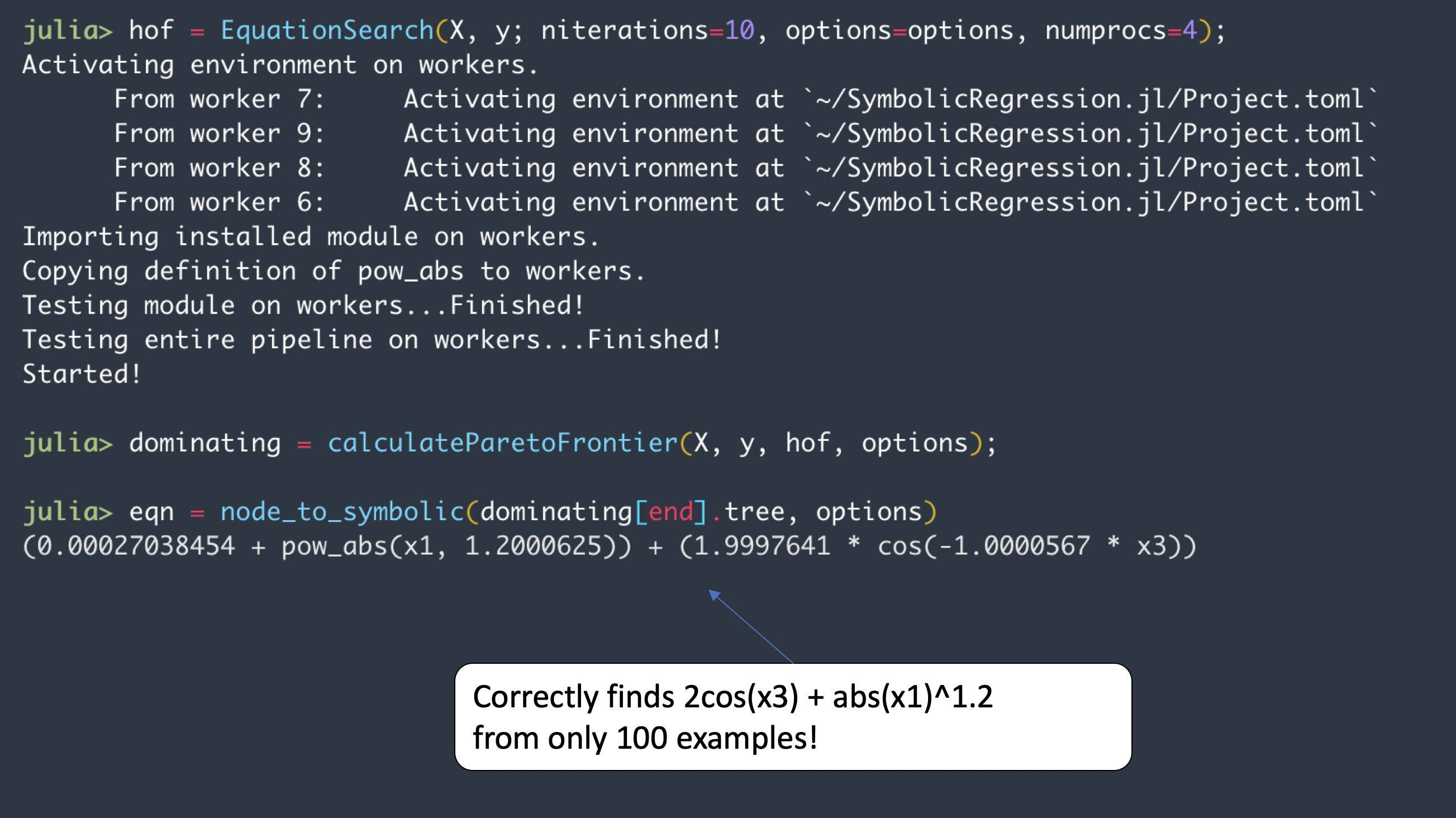| Latest release | Documentation | Build status | Coverage |
|---|---|---|---|
  |
Distributed High-Performance symbolic regression in Julia.
Check out PySR for a Python frontend.
Install in Julia with:
using Pkg
Pkg.add("SymbolicRegression")The heart of this package is the
EquationSearch function, which takes
a 2D array (shape [features, rows]) and attempts
to model a 1D array (shape [rows])
using analytic functional forms.
Run distributed on four processes with:
using SymbolicRegression
X = randn(Float32, 5, 100)
y = 2 * cos.(X[4, :]) + X[1, :] .^ 2 .- 2
options = SymbolicRegression.Options(
binary_operators=(+, *, /, -),
unary_operators=(cos, exp),
npopulations=20
)
hall_of_fame = EquationSearch(X, y, niterations=40, options=options, numprocs=4)We can view the equations in the dominating Pareto frontier with:
dominating = calculate_pareto_frontier(X, y, hall_of_fame, options)We can convert the best equation to SymbolicUtils.jl with the following function:
eqn = node_to_symbolic(dominating[end].tree, options)
println(simplify(eqn*5 + 3))We can also print out the full pareto frontier like so:
println("Complexity\tMSE\tEquation")
for member in dominating
complexity = compute_complexity(member.tree, options)
loss = member.loss
string = string_tree(member.tree, options)
println("$(complexity)\t$(loss)\t$(string)")
endSee https://astroautomata.com/SymbolicRegression.jl/stable/api/#Options

